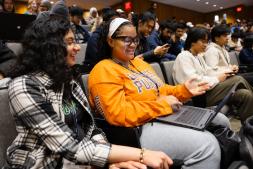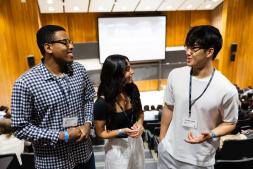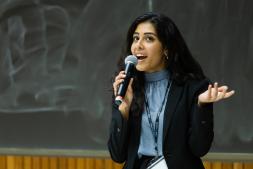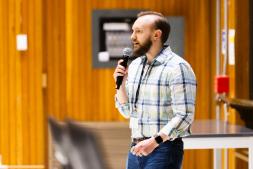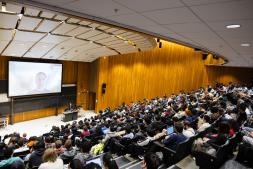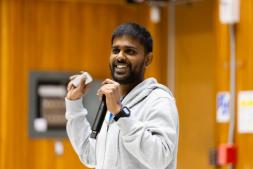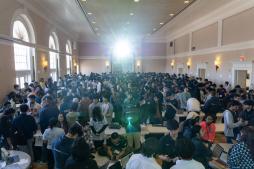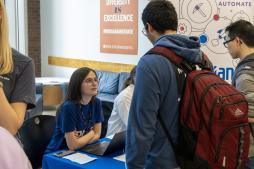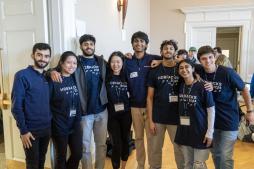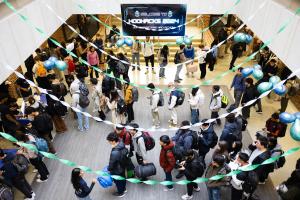
Imagine an artificially intelligent piano tutor that beams a glowing light on the individual keys you should strike, then follows along with your fingers as you play.
Or, consider AI that conducts mock interviews based on your resume and the description of the jobs for which you’re applying.
Sound like products you’d buy if anyone ever dreamed them up?
Well, two teams of University of Virginia students won top honors for these very inventions Sunday at HooHacks, the prestigious hackathon that takes place each year at the UVA School of Engineering and Applied Science.
A "hackathon" is a time-constrained social coding event that unites computer programmers and others interested in building new software programs or upgrading older ones. HooHacks is Virginia's largest hackathon, and it is ranked among the top 50 biggest collegiate hackathons nationwide. Major employers such as Intel, Leidos, Capital One, Appian, Google Cloud and Pinnacle all had representatives at HooHacks during the weekend, ready to discuss careers with talented attendees.
What makes the two UVA projects even more impressive is that they were created, like all the entries, within just 24 hours.
Focusing on Key Features
Second-year students Alexander Halpern, from Weston, Connecticut, teamed up with pals Tao Groves of Charlottesville and Ryland Birchmeier of San Diego, California. They met through UVA Engineering’s Rodman Scholars program.
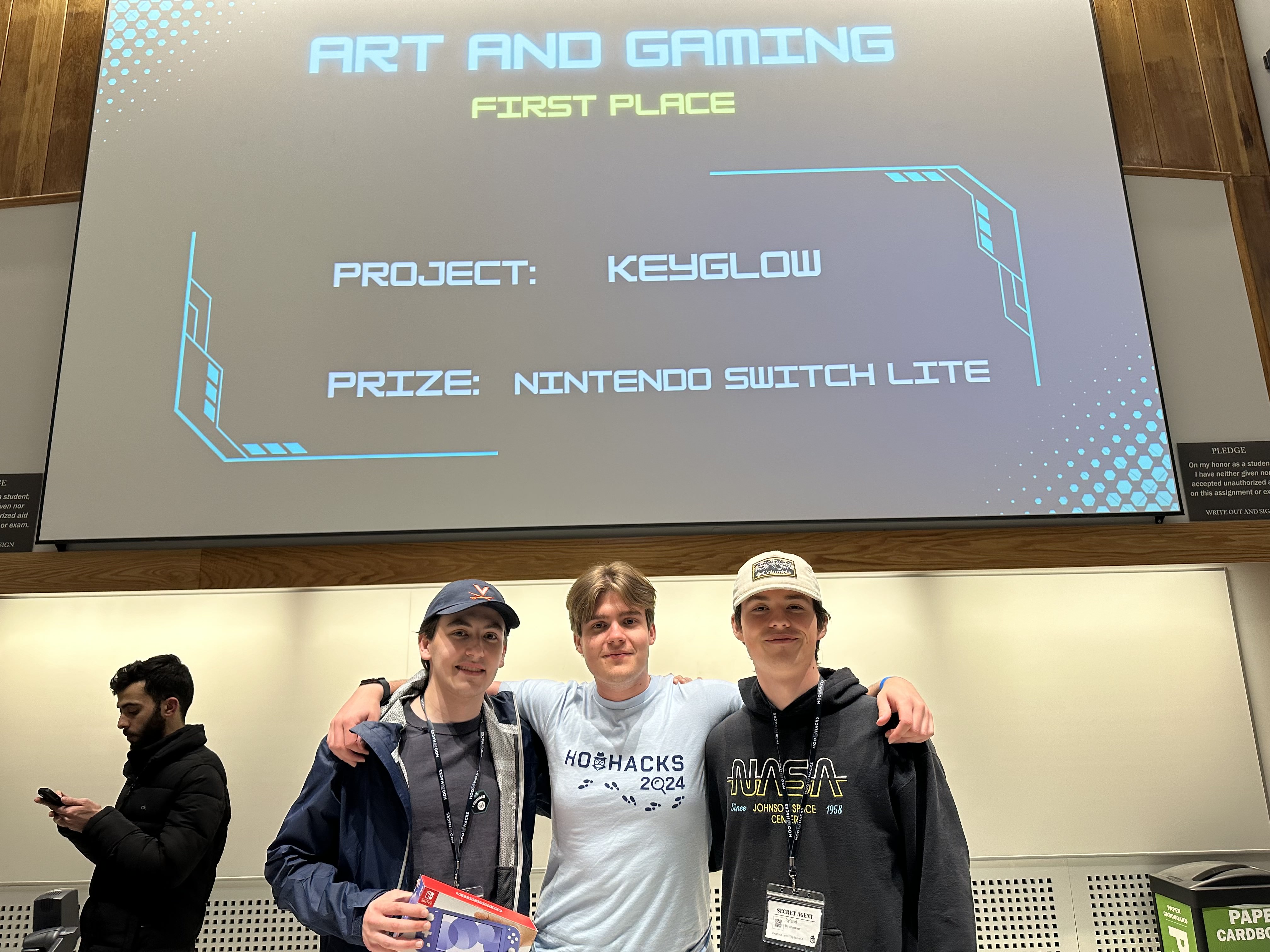
The trio created KeyGlow, a sort of “Simon Says” observe-and-repeat approach to learning piano. For their efforts, they landed first place in the Best Art and Gaming category.
“The 24-hour deadline was definitely intense,” Halpern said. “Our team had a ton of different ideas for features that would make KeyGlow awesome, but we made sure to start by building out the most essential features of our project before moving on to more complicated bonus features.”
The basics included about five hours figuring out how to display colored light on a keyboard so the AI could process which keys a student was playing.
“We finally were able to move on to implementing luxuries like having our virtual instructor be able to speak out loud to the student and give them feedback on their playing,” Halpern said.
To Sleep, or Not To Sleep?
Ronish Dua, a McLean, Virginia, native, joined forces with Herndon, Virginia, natives Alec McCue, Tommy Qu and Vishal Kamalakrishnan. Their first-time entry won them Best Beginners.
They called their mock interview tool Chiron, for the Greek mentor.
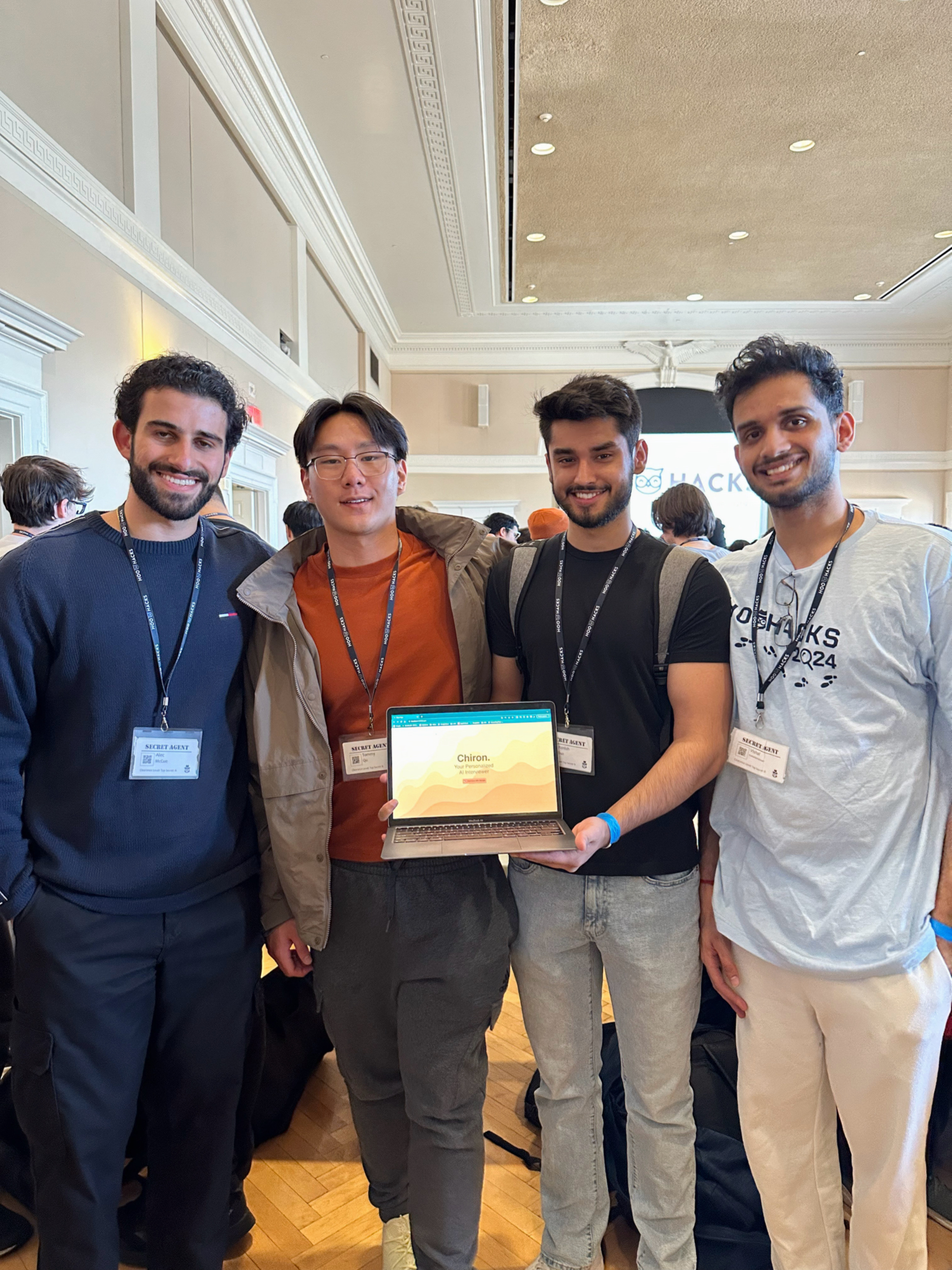
Since the Chiron crew had local digs, they weren’t among the participants who had to crash in the basement of Rice Hall if they wanted to rest. Not that they tried. They were extremely focused.
“All four of us spent all 24 hours working in my living room with zero sleep,” Dua said.
But zoning out and getting some Zs actually turned out to do the KeyGlow group some good, Halpern said.
“At around 2 a.m., we ran into this annoying bug where our software kept crashing every time we tried to check if the timing of what the user played was accurate,” he said. “After multiple hours of debugging, we were very tired and hungry, so we decided to order some food and take a break. We had some great laughs sitting on the fifth floor of Rice Hall, typing random things into our text-to-speech function.
“Eventually, we decided to go to bed, and after recharging from a few hours of sleep, we fixed the bug in less than half an hour.”
Building Community
This year, a Virginia Tech team took best overall from among the 170 projects submitted. (See complete winners’ list below.) With more entrants than ever before, competition was tight.
Yet friendship and hospitality were in evidence all around. HooHacks even provided free transportation for those coming from Northern Virginia Community College, Howard University, George Washington University, George Mason University, University of North Carolina at Chapel Hill, Duke University, North Carolina State University and Virginia Tech.
Halpern and Dua praised the event’s organizers, including HooHacks co-presidents Ankisha Singh and William Mueller, and UVA computer science professor N. Rich Nguyen.
“I was able to make some new friends, ran into some current friends, and was quite amazed at some of these student's project ideas and execution,” Dua said.
He took a selfie with Nguyen as he collected his prize. Each member of his team won a Holy Stone HS440 drone and received winner pins.
“I will 100% enter again next year,” he said.
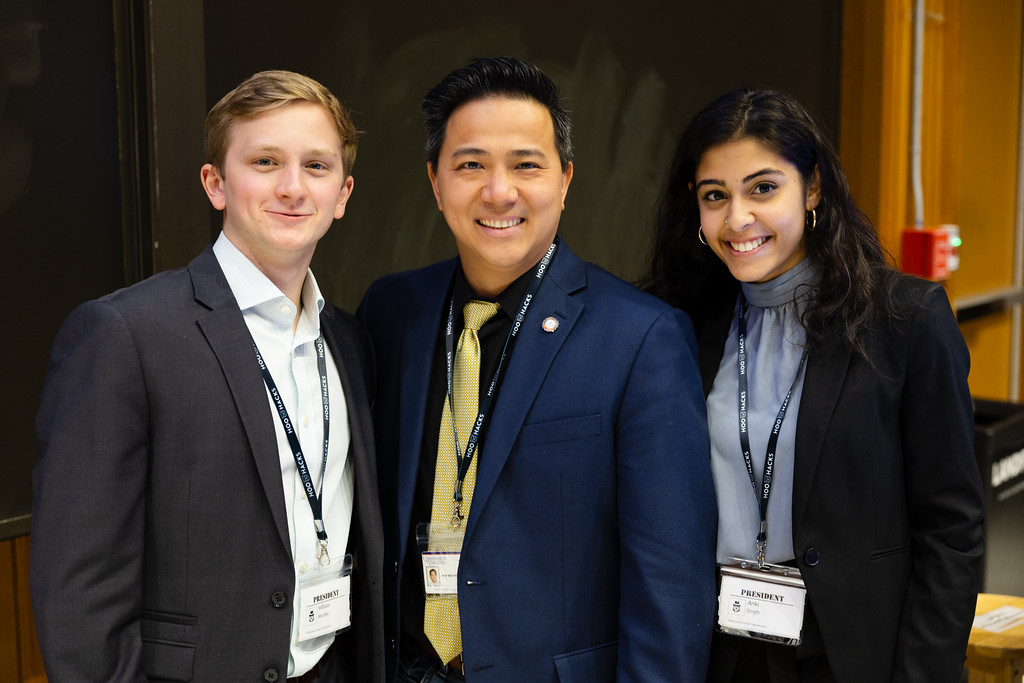
HooHacks 2024 Winners
Best Overall
3Dera - Mikhail Sannikov, Andrew Kim, Noah Provenzano, and Rituraj Sharma
Best Beginner
Chiron - Alec McCue, Vishal Kamalakrishnan, Ronish Dua, Tommy Qu
Best Accessibility and Empowerment
1st Place: Bytes - Elias Lahrim, Dhruv Varshney, Mallory Beemus, Modusami
2nd Place: Raven - Siddharth Lakkoju, Saahith Janapati
Best Art and Gaming
1st Place: KeyGlow - Ryland Birchmeier, Alexander Halpern, Tao Groves
2nd Place: Murality - Waleed Raza, Pete Pongpeauk, Feng Guo, Zhang Baiyi
Best Data Science
1st Place: Crime-Aid - Saketh Chintalapati, Anthony VR, Hemang Vasu, Jonathan Vu
2nd Place: Fake News Detector - Shekhar Kumar, Laxman Muthe
Best Education
1st Place: Canvas CoPilot - Matthew Nguyen, Saadi-Fay Fayyaz, Steven Qian, Tiara Allard
2nd Place: ProficioAI - Lucas Kohler, Milo Schwartz, Mohammed Akinbayo, Barrett Ruth
Best Finance
1st Place: Stock Options Calculator - Alexander Zhou, David Hu, Michael Martinez
2nd Place: Five Nights at Wall Street - Ratik Mathur, Kunsh Singh, Sooren Ghodsi, Kenny Zhang
Best Health
1st Place: Doctor Hoo - Jealmonte Almonte, Frank Hyun, Kareem Fenaish, Ayan Rasulova
2nd Place: InspireHealth - Ahnaf Talukder, Lilly M, Matthew Shipe
Best Sustainability
1st Place: Green Threads - Peter Do, Youssef Cherrat, Ethan Do, Alan Chai
2nd Place: EcoEats - Amanda Xiao, Lydia Moore, Nupur Joshi
Learn more about the HooHacks and the winning projects.
